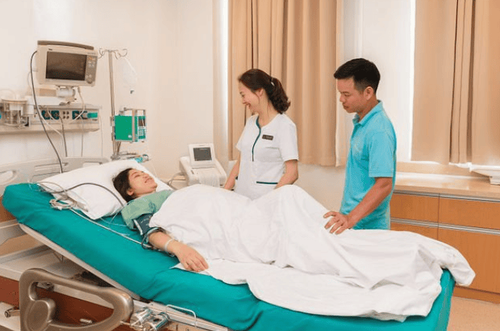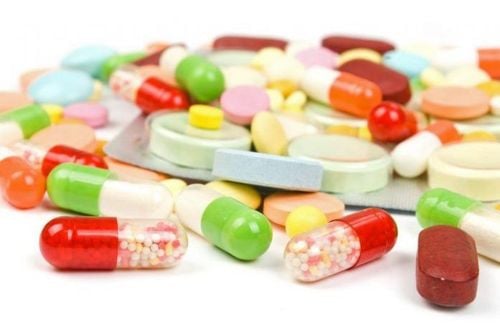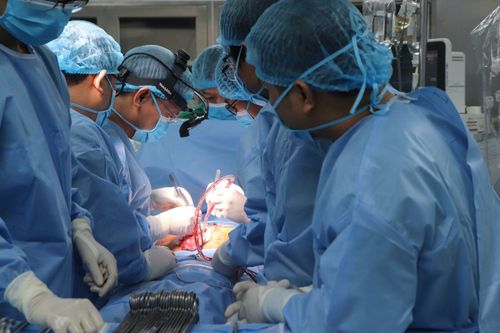This is an automatically translated article.
Post-cardiac surgery pain is a state of sensory and emotional discomfort for the patient. This condition causes many disorders on organ systems, inhibits the immune system, increases inflammation, slows healing, nutritional disorders, prolongs hospital stay,... Therefore, the Choosing the right method of pain relief after heart surgery plays an important role in creating comfort and improving the quality of treatment for patients.
1. Impact of pain after heart surgery on patient's health
Pain after cardiac surgery is a complex reaction due to many causes, clinical manifestations are abnormal signs of the autonomic nervous system, mental disorders or changes in the patient's personality. The degree of pain after heart surgery depends on the nature, extent of surgery, the method of anesthesia performed, and the psychophysiology of the patient.
Impact of postoperative pain on patient's health:
Increases the risk of chronic pain; The state of immunosuppression due to pain makes the incision slow to heal, slow to recover, and increases the risk of post-operative infection; Patients are prone to complications such as myocardial ischemia or paralytic ileus; Psychological effects can cause anxiety, depression; Limiting movement increases the risk of vascular occlusion, adversely affecting wound care and rehabilitation exercises.
2. Benefits of pain relief after heart surgery
Pain relief after heart surgery is a treatment measure that helps bring comfort to the patient's body and mind so that the patient can regain balance of mind - physiology, improve treatment efficiency. The benefits of pain relief after heart surgery include:
Helps wounds heal faster; Reduce the risk of wound superinfection after surgery; Help patients recover health soon, practice early rehabilitation; Reduce the risk of embolism and pneumonia ; Shorten hospital stay.

Giảm đau sau mổ tim giúp đem lại cảm giác dễ chịu về thể xác và tinh thần của bệnh nhân, nâng cao hiệu quả điều trị
3. Methods of pain relief after heart surgery
Choosing pain relief techniques after heart surgery depends on the level of surgery, pain location, pain at rest or when moving,... Common pain relief methods include:
3.1 Oral medication After open-heart surgery, patients need help for the first few weeks. The incision is often uncomfortable, itchy, painful, or numb along the incision. This is a normal phenomenon, patients are usually prescribed pain medication by the doctor before being discharged from the hospital. The symptoms of pain and itching can last from a few weeks to a few months, but patients are only allowed to use pain relievers as prescribed by the doctor, not arbitrarily use more.
The used pain relievers include:
Paracetamol has different brand names on the market such as: only paracetamol form, combined form with weak morphine such as codeine or combined form with dextropropoxyphene; Non-steroidal anti-inflammatory drugs (NSAIDs). 3.2 Oral administration of drugs Intravenous route: Non-morphine and morphine analgesic routes are used according to patient-controlled analgesia techniques; Subcutaneous route: Drugs of the morphine family; Intramuscular route: It is recommended to be abandoned because of pain during injection, post-injection hematoma due to anticoagulation after surgery. Using morphine drugs
Two techniques are used after surgery including: Self-controlled analgesia or intermittent intravenous, subcutaneous injection.
Infusion through the epidural catheter
The method of drug administration through the epidural catheter provides better pain relief than intravenous and subcutaneous administration. This procedure can either use morphine alone or combine a drug of the fat-soluble morphine family with a local anesthetic or clonidine.
Anal medicine
Patients can be prescribed to use Paracetamol suppositories, Morniflumate (Nifluril), Voltaren suppositories,...
3.3 Pain relief, recovery by exercise After time In resuscitation after cardiac surgery, patients should note:
With coronary artery bypass surgery: The patient may feel more pain in the leg than in the incision area in the chest (if the leg vein is taken as a bridge). connection). To reduce discomfort in the legs and reduce stiffness, patients should walk gently, participate in daily activities; With heart valve surgery: The patient should start the exercise process early, gradually increasing it little by little. Gentle walking will be very good for the functioning of the heart and lungs. The patient should start walking slowly and gradually increase the speed, stopping movement if there are signs such as shortness of breath, chest pain or dizziness.

Có thể sử dụng thuốc đường uống để giúp giảm đau sau mổ tim
4. Note for patients after heart surgery
Mobility: After surgery, the patient can perform daily activities as usual but should pay attention: Do not lift objects weighing more than 2kg in the first 3 months, do not stand in place for more than 15 minutes. climb stairs slowly, don't do movements that strain your chest or cause a lot of pain in the incision, don't drive for 4-6 weeks, rest for 8 weeks, don't travel for the first 4 weeks , do not raise your hand above your head,...; Eating: Encourage the patient to eat several small meals throughout the day, but do not force them to eat too much or make a lot of food. It is advisable to maintain a suitable diet for the patient after surgery, just enough to ensure nutrition and not create a burden on the heart. Foods that are beneficial for patients after heart surgery include vitamins, beneficial fats, fiber and should limit harmful fats, limit foods rich in vitamin K,...; Sleep: Improve the patient's sleep by: Using pain relievers, arranging beds so that the patient has a comfortable sleeping position, listening to relaxing music, avoiding the use of stimulant drugs,... applying the above measures, if the patient still lacks sleep, has trouble sleeping, it is necessary to notify the doctor; Activities: When bathing, do not wet the surgical scar for the first few weeks. If the surgical scar becomes infected, the patient should notify the doctor immediately. At the same time, patients should practice breathing according to the doctor's instructions, take medicine exactly as prescribed; Tell your doctor right away if: There is tension in the incision or breastbone area, feeling that the breastbone is moving abnormally with movement, shortness of breath, chest pain, incision pain does not improve, pulse slow, fast or not regular, severe headache, cough a lot, may cough up blood, experience side effects of cardiovascular medicine, gain a lot of weight quickly, red incision or discharge, many bruises appear on the skin, bleeding bloody nose and bleeding gums, blood in urine or pink urine, bloody or black stools, dizziness and vomiting a lot, hemiplegia, fever over 38.5°C,... There are many methods and techniques for pain relief after heart surgery. The choice of method will depend on the level of pain, accompanying medical history, equipment, the ability to care for resuscitation after cardiac surgery,... Patients need to work closely with the doctor to ensure effective pain relief, early recovery and reduced risk of dangerous complications.
Vinmec International General Hospital is the first hospital in the world to announce successful open-heart surgeries with the support of spinal vertebral plane (ESP) anesthesia.
With the orientation to become the first pain-free hospital that does not use morphine, Vinmec adheres to world-standard training programs on enhanced recovery after surgery (ERAS). The success of open-heart surgery using ESP helps Vinmec go a long way in pain control in major surgery without the use of morphine.
To further improve the effectiveness of ESP, Vinmec is collaborating with the University of Montpellier France to develop a postgraduate training program in advanced regional anesthetic techniques.
Vinmec said that it has performed hundreds of open heart surgeries without using morphine, the success rate is up to 100%. It is expected that this unit will deploy the application of morphine-free surgery on all surgeries related to the chest and abdomen in the near future.
Notably, children from 3kg or more and in elderly patients with organ dysfunction such as liver, kidney, lung... can still use this method. Accordingly, the patient absolutely did not use any morphine after surgery.
Please dial HOTLINE for more information or register for an appointment HERE. Download MyVinmec app to make appointments faster and to manage your bookings easily.













